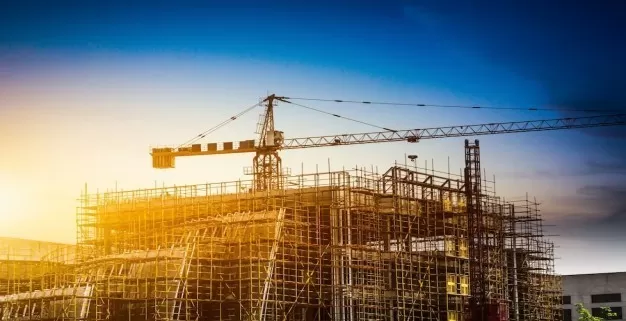
Arbitration is an exceptional means to settle disputes between the parties to a contract, where the parties resort to arbitration unilaterally. The parties to disputes arising from the implementation of a construction contract usually resort to arbitration due to the easiness of rules of evidence in arbitration. Thus, we, as lawyers who specialize in arbitration in construction contracts, have considered clarifying the main aspects of arbitration in construction contracts.
1. Nature of Construction Contracts in light of Provisions of the Egyptian Civil Law:
Being the most common among other contracts, construction contracts are defined by Egyptian Civil Code (“Code”) and established with a special scheme. As they regulate specific legal transactions, therefore, it is preferable to set a specific organization for each type of these contracts separately, to match them with each transaction governed thereby. Accordingly, we can clarify the general features of construction contracts in the light of the Code, under which Article 646 defines the contract as “a contract whereby a contracting party thereto undertakes to do something or perform work for a fee that the other contracting party undertakes to pay.”
That is, construction contracts have several characteristics:
1. It is an informal consensual agreement;
2. It is a binding agreement between both parties; and
3. It is a netting contract.
Consent is based on two factors; one of which is the thing or work required to be performed by the contractor, and the other is the fee that the employer undertakes to pay. A construction contract is also different from lease and employment contracts, in terms of the nature of the transaction and relationship between the parties thereto as well as the term of the contract in most cases.
Consent in Construction Contracts is also based on two factors:
1. The thing or work required to be manufactured or performed by the contractor, who is one of the contracting parties; and
2. The fee or price that the employer undertakes to pay for the work performed by the other contracting party.
It is worth noting that construction contracts shall also be drafted in a professional and detailed manner, as to include a set of basic points that shall be indicated when executing the contract, namely:
1. Determining the owner’s responsibility for securing some requirements for the project, such as equipment or tools, or delivering a clear place, as the case may be;
2. Ensuring that the conditions of the contract are not in conflict with the laws of the country in which the project is located;
3. It must clarify in detail the required specifications, agreed quality, prices, fees, payments, advanced payments; how they are paid, and the stages of payment;
4. Often, special conditions are set for construction contracts, such as the arbitration clause, delay fine, maintenance period, and the exact amount of the fine, which shall be determined as per the circumstances for each day or each month. It also shall determine the method of bearing the risks that may occur under normal circumstances; and
5. Determining the method of implementation and the completion date of the project and, if it is possible, each milestone in order of priority, such as preparing the site before preparing an accommodation for project workers, etc.
2. Setting “Arbitration Clause” or “Terms of Reference” to construction contracts; and its practical importance:
A) Benefit of Resorting to Arbitration in Construction Contracts:
Resorting to arbitration in construction contracts has great practical importance, as it is deemed the fastest solution to reach a final settlement in the event of a dispute between the parties to the contract. Also, arbitration is featured by flexibility, prompt procedures, confidentiality, and availability of expertise for issuing opinions and giving an award, to settle any dispute that may arise between the parties about the implementation of the terms of the contract. Hence, the parties to the dispute in construction contracts seek arbitrators with engineering expertise to decide upon the subject of the dispute. The determination of the resort to arbitration between the contracting parties may be through a clause in construction contracts, and, in this case, it is called the “Arbitration clause,”. Also, the arbitration agreement may be based on “Terms of Reference”. The material difference between them is that the “arbitration clause” is included in the conditions of the contract, taking into account the special situation of this clause from the other clauses of the contract as it will be explained later – where the contracting parties may agree to resort to arbitration in the event of any dispute over the implementation of the contract, in which case the agreement precedes the arising of the dispute. As for the “Terms of Reference”, it is an independent document that can be agreed upon between the parties who sign thereon after the dispute has already occurred. This is the difference between the two means of resorting to arbitration. It is worth noting that arbitration is also featured by greater ease in terms of “Proofing” of facts and documents without being adhered to special procedures in this regard, as is the case in resorting to the judiciary.
B) Difference between Arbitration Clause from Other Contract Provisions:
Arbitration Clause is not an objective contractual provision, but rather a procedural provision in reality and has a special legal nature as well. It is an independent provision that is not affected by the other provisions of the contract or the contract as a whole, except with regard to the jurisdiction. As for its existence and enforceability, it is a completely independent provision, and indeed, may be deemed as a contract within a contract, as if the contract that includes an arbitration clause is two contracts in a single document.
C) Difference between “Terms of Reference” and “Arbitration Clause”
As stated above, it is permissible to agree on arbitration after the dispute has occurred through an independent document called “Terms of Reference”, of which the most important feature is that it may be established and signed between the parties after the dispute has occurred, even if that dispute is submitted to the judiciary for adjudication. In this case, the agreement set out in the “Terms of Reference” shall specify the issues covered by the arbitration, otherwise, the entire agreement will be null and void.
3. Arbitration Proceeds in Construction Contracts:
(a) There are differences between the two cases, that should be indicated as follow:
1. Arbitration shall be institutional:
In this case, the contract is not only the law governing the contracting parties regarding the arbitration clause or Terms of Reference, contrary to the principle that is followed in practice and law, as in institutional arbitration, but the controls for all matters relating to the arbitral process are also the rules of the arbitration institution. Such rules include a precise determination of everything related to arbitration between the parties to the contract if any dispute has arisen. It also organizes the arbitration process completely and prepared in advance. If the parties to the contract agree that the arbitration shall be made under that codification, no party may deviate from its provisions and regulations.
2. Otherwise, the arbitration shall be free:
Although we do not recommend that arbitration be “free”, in free arbitration, there is greater freedom for the contracting parties to determine many of the procedures and forms of the agreement to resort to arbitration. However, of course, this shall be made without conflict with the law in the country of arbitration, if a binding provision is included to organize one or more arbitration procedures, as the case may be. The arbitrators to be selected in this process may be identified by incorporating a provision or “Terms of Reference”. However, if a dispute arises during the process of free arbitration and both parties do not agree on selecting the arbitrators, if the arbitral tribunal consists of one arbitrator, the court will designate an arbitrator at the request of any of the parties. If the arbitral tribunal consists of three arbitrators, this arbitrator shall be selected, in this case, each party shall select an arbitrator on its behalf. Then, the two arbitrators agree on the third arbitrator. If none of the parties selects its arbitrator within the thirty days following receipt of the request for that from the arbitration requesting party, or if the two selected arbitrators did not agree on selecting the third arbitrator during the thirty days following the day of the appointment of the last arbitrator, the court shall appoint the arbitrator at the request of any of the parties. In all cases, the number of arbitrators appointed by the court shall be equal to the number agreed upon between the parties to the contract.
B) Determination and Agreement on Language of Arbitration between Contracting Parties:
The parties to the contract shall agree on the language in which the arbitration process and all its procedures will be conducted. In the event of disagreement, the language of the venue of arbitration shall be adopted, or the language may be determined by the arbitral tribunal. For example, Article 29 of the Egyptian Arbitration Law stipulates as follows:
“1. Arbitration shall be conducted in the Arabic language unless another language or languages are agreed upon by both parties or determined by the arbitral tribunal. This agreement or determination shall apply to all written statements and briefs, to the oral hearings as well as to all awards, decisions, or other communications by the arbitral tribunal, unless specified otherwise by the agreement of both parties or by determination of the arbitral tribunal.”
“2. Arbitral tribunal may order that all or part of the documentary evidence submitted in the case shall be accompanied by a translation into the language or languages used in the arbitration. In the case of multiplicity of such languages, the arbitral tribunal may limit the translation to some languages to the exclusion of others.”
C) Choice of Seat or Venue of Arbitration:
The choice of the seat or venue of arbitration shall be subject, in all cases, to the will and agreement of the parties, provided, that the chosen place shall be appropriate for arbitration. However, the arbitral tribunal may consider meeting in any place to proceed with certain arbitral proceedings. Indeed, if the parties cannot agree on the venue, the arbitral tribunal may determine it, as per Article 28 of the Egyptian Law which stipulates that:
“Parties to arbitration may agree on the venue of arbitration to be inside or outside Egypt. Failing such agreement, the arbitral tribunal shall determine the venue of arbitration having regard to the circumstances of the case, including the convenience of the venue to the parties. This shall be without prejudice to the power of the arbitral tribunal to meet in any place it considers appropriate to undertake any of the arbitral proceedings, such as hearing the parties to the dispute, witnesses and experts, reviewing documents, inspecting goods or other property, for consultation among its members or otherwise.”
D) Number of Arbitrators:
The agreement on the number of arbitrators shall be made between the parties on an arbitration clause or Terms of Reference as well. However, the number of arbitrators shall be an odd number at all times; i.e., one or three arbitrators.
E) Agreement on Arbitration Period:
The contracting parties may set a timeframe to reach a definitive award in the dispute, as undue prolongation of the dispute will not fall in the interest of any party to any undue. Rather, the failure to set a deadline for concluding the arbitration process and reaching a definitive award in the dispute is inherently contrary to the purpose for which the parties resorted to arbitration in the first place. As we mentioned above, resorting to arbitration is due to the contracting parties’ desire to resolve contractual disputes faster than the ordinary judiciary. To maintain this important feature, the parties may specify that period to settle the dispute by a final award.

 English
English
 العربية
العربية
 中文语言
中文语言
 русский язык
русский язык
 Le français
Le français
 Española
Española



